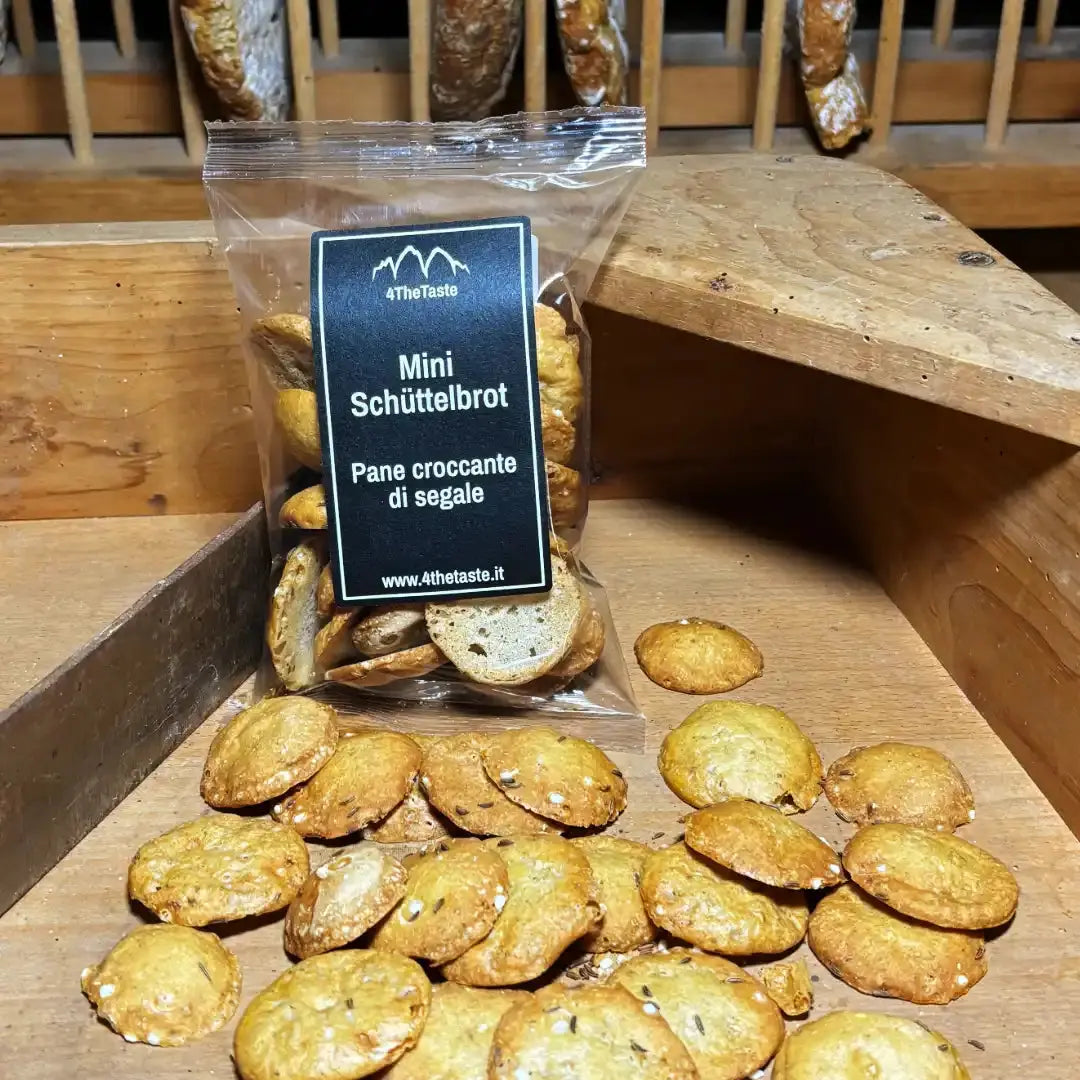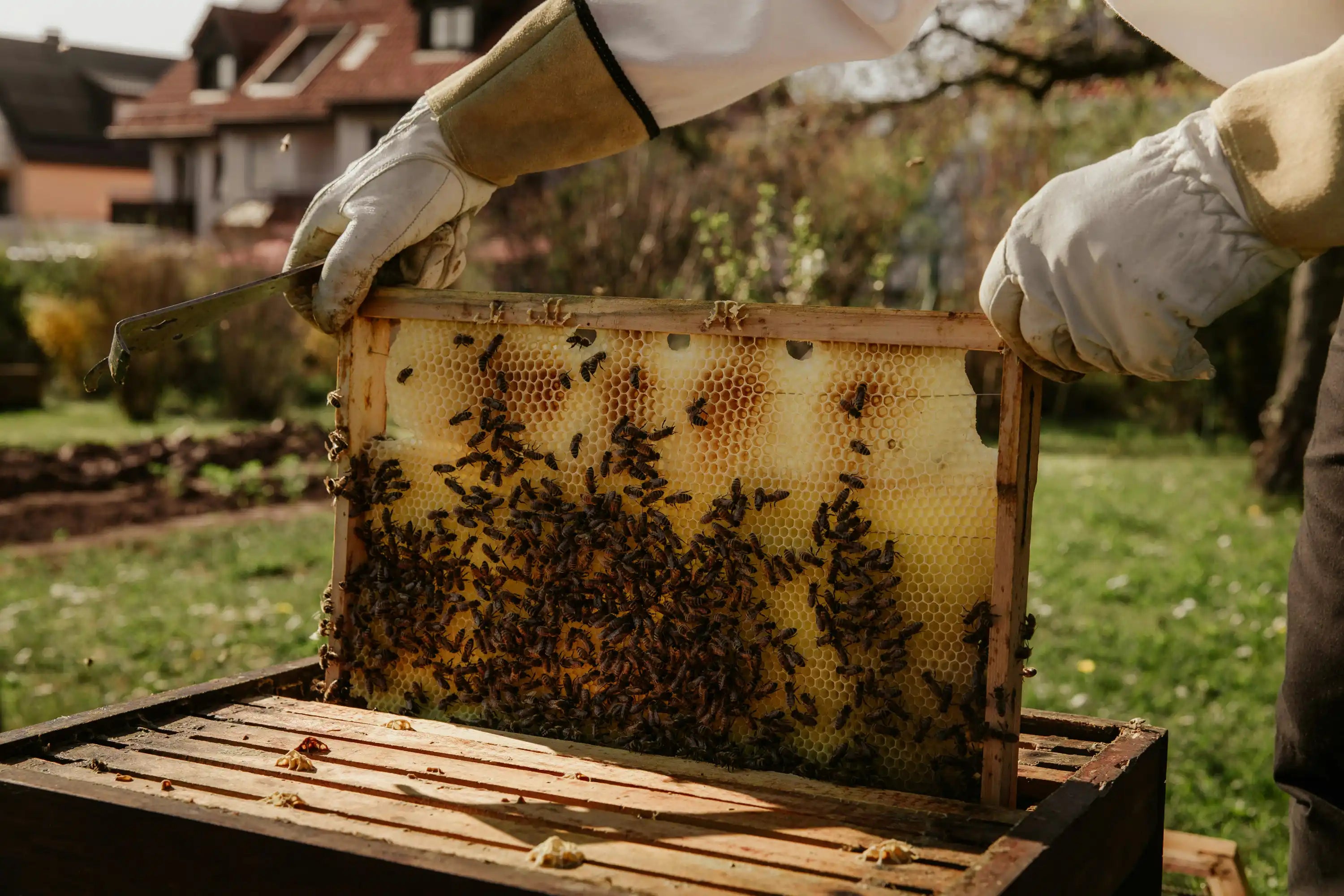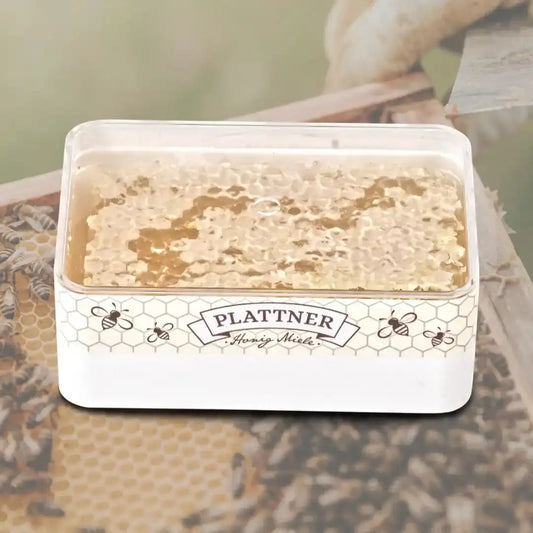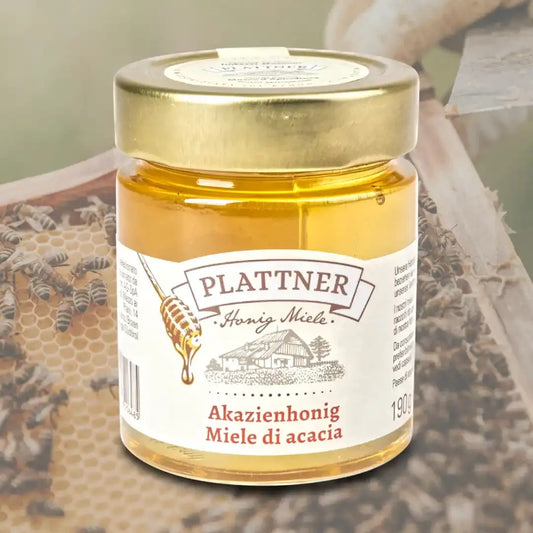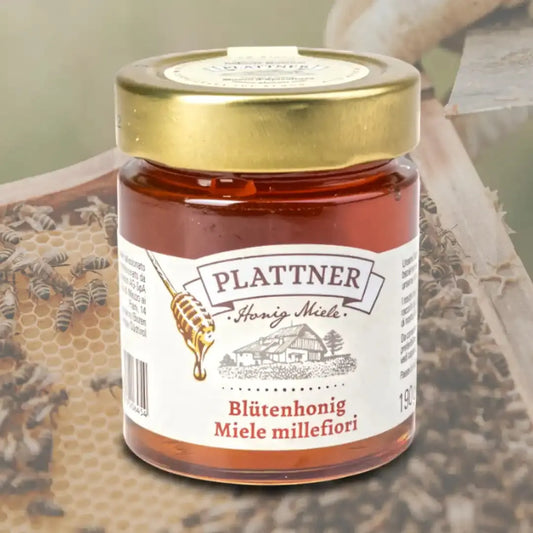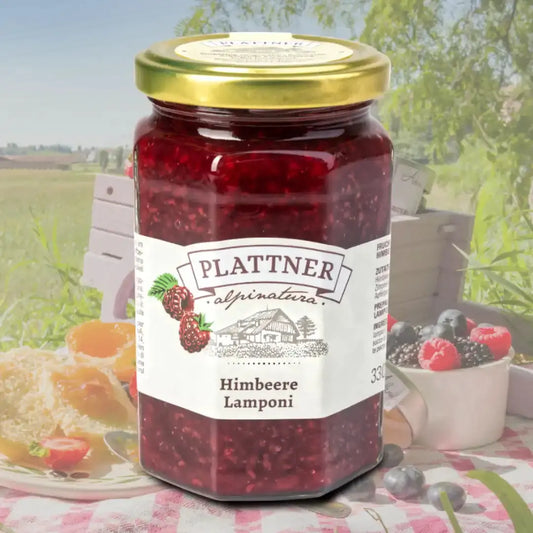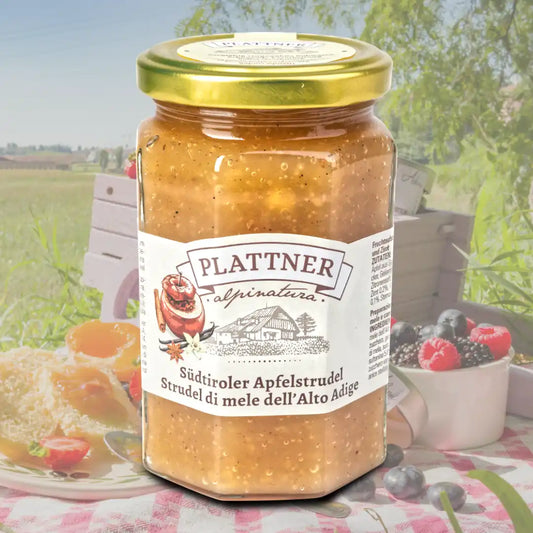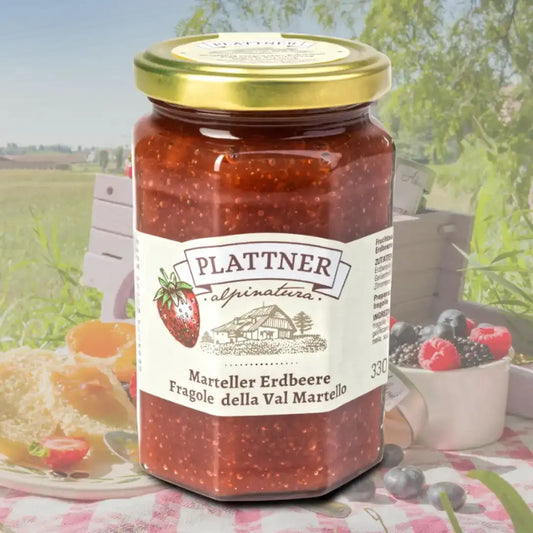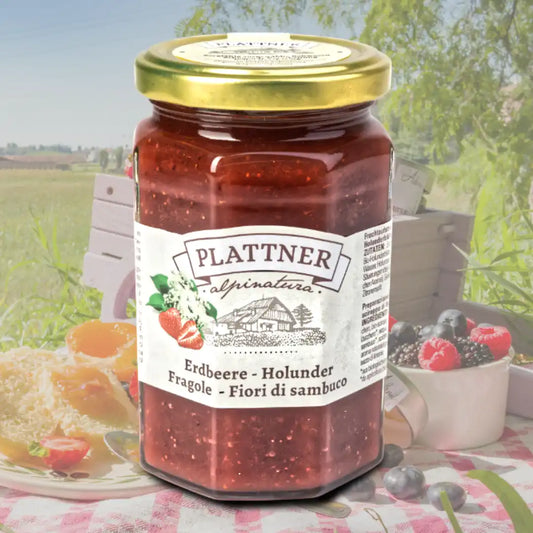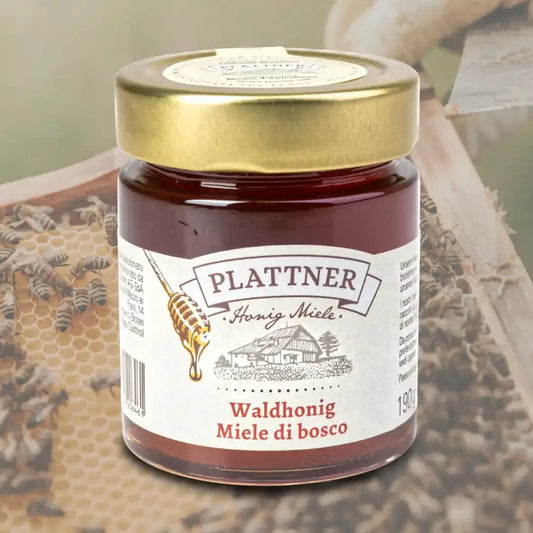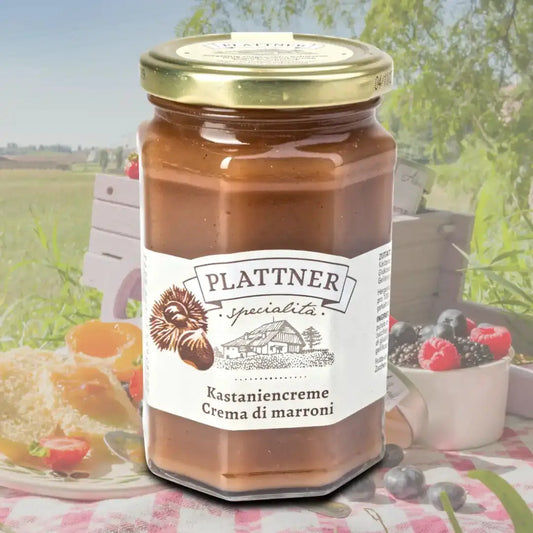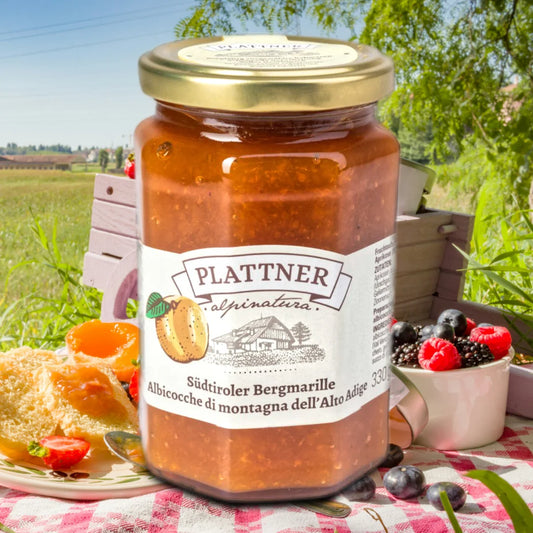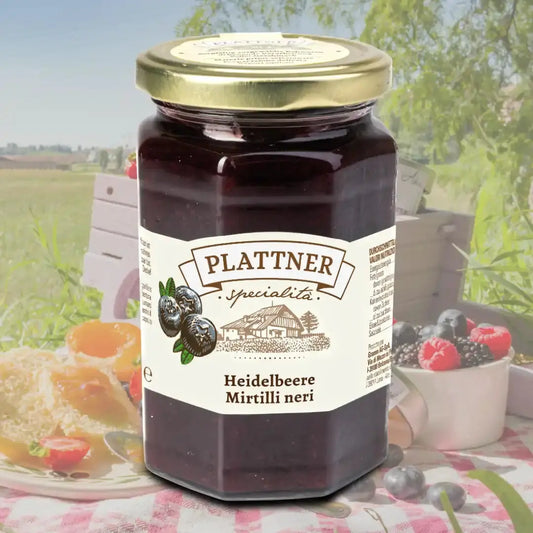Starting from 99€ order value
Von der Wiese ins Glas: Die Reise des Südtiroler Honigs
South Tyrol is not only known for its hearty specialties such as bacon and Kaminwurzen, but also for its first-class honey. South Tyrolean honey is a true natural product that is shaped by the region's rich flora and traditional beekeeping. In this article, we will take you on the journey of honey – from the blooming alpine meadows to your glass.
The special flora of South Tyrol: Where honey is produced
The bees in South Tyrol are fortunate to live in one of the most diverse and unspoilt landscapes in Europe. The region offers an extraordinary variety of flowering plants that provide the nectar for honey.
- Alpine flowers and herbs: In the higher areas, the bees collect nectar from a variety of alpine flowers and wild herbs. These plants grow in lush alpine meadows that are free from pesticides and other pollutants, which guarantees the purity and intense flavor of the honey.
- Chestnut and linden trees: In the lower regions and valleys of South Tyrol, the bees find flowers from chestnut and linden trees, which give the honey a special flavor and depth.
The work of beekeepers: tradition meets care
Beekeeping has a long tradition in South Tyrol and is often passed down from generation to generation. The beekeepers in the region work with great care and respect for nature to ensure that every drop of honey reaches the highest quality.
- Natural husbandry: In South Tyrol, beekeepers attach great importance to the natural husbandry of their bee colonies. The hives are located in untouched nature, far away from industrial influences, which ensures the health of the bees and the purity of the honey.
- Traditional harvest: Honey is harvested in South Tyrol using tried and tested methods. The honeycombs are carefully removed and the honey is extracted using a careful process to preserve its valuable ingredients and authentic taste.
Various types of South Tyrolean honey
South Tyrolean honey is as diverse as the landscape itself. Each region and each flowering year brings out its own flavors that make the honey unique.
- Blossom honey : Blossom honey from South Tyrol is known for its mild, fruity taste. It is made from the nectar of various spring and summer flowers and is an all-rounder in the kitchen - whether for sweetening tea or as a spread on fresh bread.
- Forest honey : This darker, stronger honey comes from the forests of South Tyrol. The bees here collect nectar from fir and spruce trees as well as from forest flowers, which gives the honey an intense, slightly bitter taste. Forest honey goes particularly well with cheese and game dishes.
- Chestnut honey : The honey from the flowers of chestnut trees has a characteristic, slightly bitter note and a dark brown color. It is ideal for refining savory dishes or as an unusual accent in desserts.
Tips for storing and using honey
To ensure that South Tyrolean honey retains its aroma and valuable ingredients for a long time, proper storage is important:
- Store in a cool, dark place: Honey should be stored in a cool, dark place, ideally in a tightly sealed glass container. Too much light and heat can cause the honey to crystallize quickly and affect its quality.
- Versatile use: South Tyrolean honey is not only a sweet spread, but also a versatile ingredient in the kitchen. You can use it to sweeten tea, in salad dressings, in baking or even as a marinade for meat dishes.
Conclusion
South Tyrolean honey is a natural product that is characterized by the region's unique flora and traditional beekeeping. From the flowering alpine meadows to your glass, every drop of honey reflects the purity and diversity of the South Tyrolean landscape. Whether blossom, forest or chestnut honey - the different varieties offer something for every taste and enrich not only breakfast, but also a variety of dishes. Enjoy the taste of South Tyrolean nature in its purest form and discover the culinary possibilities that this special honey offers you.
